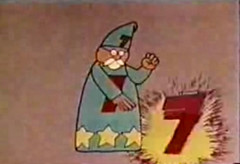The humanist stain
Viewed in the context of the scholasticism and religious orthodoxy that once ruled European thought, humanism is a novel view of things and an impressive achievement.
That human beings were suitable subjects for honorific generalization, and not mere debased matter, was an interesting and improbable thesis. It was OK if the sun didn’t revolve around the earth, so long as the center of the moral universe was the human subject. Thought was equal to the world’s diversity, and imagination had the power to create forms as knowable and beautiful as those revealed in nature’s book.
At present, the notion of humanism is rather out of fashion, and it is widely recognized that invocations of “the human” typically provide euphemistic cover for the degradation of actual humans. (For a recent demonstration of this, compare the theory and practice of Clintonian humanitarian intervention.) It is clear enough by now that praise of the nobler features of human beings has an ideological function, and that generalizations about the human are rhetorical tools in the service of power that is uninterested in human lives.
Charlotte Street rails against the abstract and empty humanism of those who, in the name of life, would keep Terri Schiavo’s feeding tube pumping indefinitely. Here is the theoretical prelude to his critique:
Thus, while I agree with the spirit of Charlotte Street’s post, the assault on humanism strikes me as rather unnecessary, a bit like producing arguments for the non-existence of God or taking a stand against Cartesianism. Might it be more interesting to try to recover something useable and true from unfashionable forms of thought? Doesn’t Charlotte Street’s argument for giving Schiavo a break turn on a comparison between human flourishing—what it is for a human to live well, in a sense of “live” that is appropriate to our species-being and that, true to Aristotle, implies active, cognizant participation—and whatever sort of sub-eudaimonistic life she is living? Whether one considers this sort of speculation humanistic or not is perhaps a merely verbal affair. But fear of the ideologization of our language shouldn’t prevent us from trying to say what we mean.
That human beings were suitable subjects for honorific generalization, and not mere debased matter, was an interesting and improbable thesis. It was OK if the sun didn’t revolve around the earth, so long as the center of the moral universe was the human subject. Thought was equal to the world’s diversity, and imagination had the power to create forms as knowable and beautiful as those revealed in nature’s book.
At present, the notion of humanism is rather out of fashion, and it is widely recognized that invocations of “the human” typically provide euphemistic cover for the degradation of actual humans. (For a recent demonstration of this, compare the theory and practice of Clintonian humanitarian intervention.) It is clear enough by now that praise of the nobler features of human beings has an ideological function, and that generalizations about the human are rhetorical tools in the service of power that is uninterested in human lives.
Charlotte Street rails against the abstract and empty humanism of those who, in the name of life, would keep Terri Schiavo’s feeding tube pumping indefinitely. Here is the theoretical prelude to his critique:
“You see that you don't love them,” says Roquentin. “You wouldn't recognize them in the street. They're only symbols in your eyes. You are not at all touched by them: you're touched by the Youth of the Man, the Love of Man and Woman, the Human Voice.”While I think it’s right to recognize that the pro-life defenders of Terri have a truncated sense of the sort of life that might be appropriate to human beings, it’s plausible to see their protest as based more on a misplaced, projective empathy than on the deployment of an empty concept. (This latter might apply more to the opportunistic Congressmen eager to earn pro-life cred.)
In Sartre's Nausea there is a famous attack on the Humanist. He is, says Roquentin, interested in people only as illustrations of an abstraction called 'The Human, ' he feels pity, concern, etc. for them only via his concern for this bloodless generality. In its negation of actual humans, Humanism is anti-humanism.
Thus, while I agree with the spirit of Charlotte Street’s post, the assault on humanism strikes me as rather unnecessary, a bit like producing arguments for the non-existence of God or taking a stand against Cartesianism. Might it be more interesting to try to recover something useable and true from unfashionable forms of thought? Doesn’t Charlotte Street’s argument for giving Schiavo a break turn on a comparison between human flourishing—what it is for a human to live well, in a sense of “live” that is appropriate to our species-being and that, true to Aristotle, implies active, cognizant participation—and whatever sort of sub-eudaimonistic life she is living? Whether one considers this sort of speculation humanistic or not is perhaps a merely verbal affair. But fear of the ideologization of our language shouldn’t prevent us from trying to say what we mean.


1 Comments:
I agree with this entirely. In fact, many of the people who want Schiavo to live out the term of her sentence seem to have more in common with the older religious orthodoxy than with humanism. To them, the desires or the happiness of the human subject is nothing to the will of God: the crucial text (pun intended, I suppose) is The Passion of the Christ. If our savior suffered so in his final days, who the hell is Terri Schiavo to want to be delivered?
On the larger question, we can't abandon every system of values that's perverted to justify oppression and torture because, the fact is, most systems can be abused that way by the cleverer among oppressors and torturers. When that happens, what we ought to do is reassert those values with their full force and meaning. Honestly, where's the outrage?
Post a Comment
<< Home